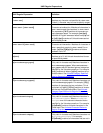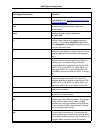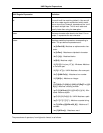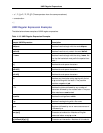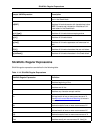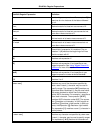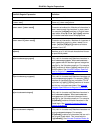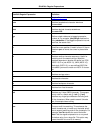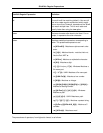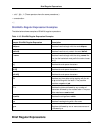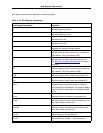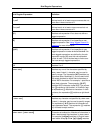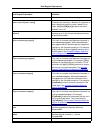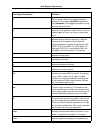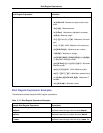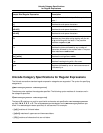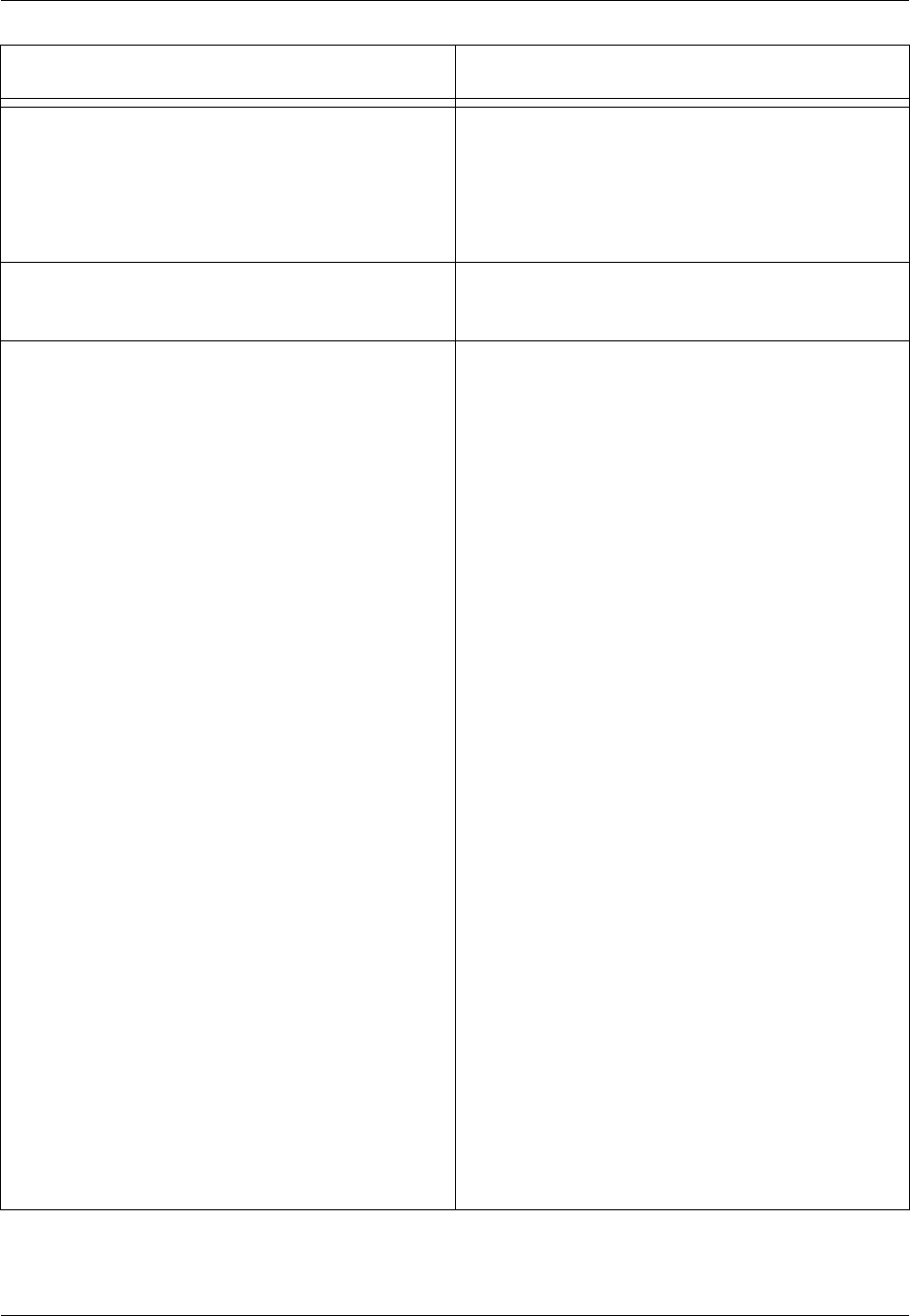
SlickEdit Regular Expression Definition
\ol Turns off multi-line matching (default). You can still
use \n to create regular expressions which match
one or more lines. However, expressions like ?# will
not match multiple lines. This is much safer and
usually faster than using the \om option.
\char Declares character after slash to be literal. For ex-
ample, \: represents the colon character.
:char Matches predefined expression corresponding to
char. The predefined expressions are:
• :a [A-Za-z0-9] - Matches an alphanumeric char-
acter.
• :b ([ \t]#\) - Matches blanks - note that :b is not
like the Perl/.NET \s.
• :c [A-Za-z] - Matches an alphabetic character.
• :d [0-9] - Matches a digit.
• :f ([~\[\]\:\\/<>|=+;, \t"’]#) - Windows: Matches a
file name part.
• :f ([~/ \t"’]#) - UNIX: Matches a file name part.
• :h ([0-9A-Fa-f]#) - Matches a hex number.
• :i ([0-9]#) - Matches an integer.
• :n (([0-9]#(.[0-9]#|)|.[0-9]#)([Ee](\+|-|)[0-9]#|)) -
Matches a floating number.
• :p (([A-Za-z]\:|)(\\|/|)(:f(\\|/))@:f) - Windows:
Matches a path.
• :p ((/|)(:f(/))@:f) - UNIX: Matches a path.
• :q (\"[~\"]@\"|'[~']@') - Matches a quoted string.
• :v ([A-Za-z_$][A-Za-z0-9_$]@) - Matches a C
variable.
• :w ([A-Za-z]#) - Matches a word.
The precedence of operators, from highest to lowest, is as follows:
SlickEdit® Regular Expressions
530



